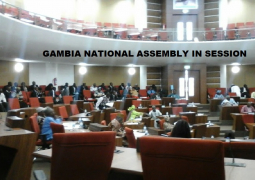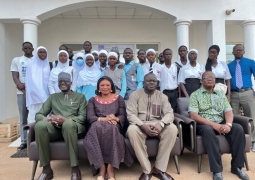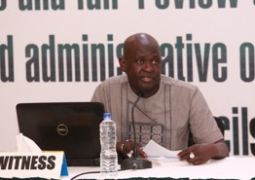
Speaking as a guest on Sheikh Ahmad Ceesay’s popular TikTok podcast, Faal passionately argued that denying Diaspora Gambians the right to vote violates their fundamental rights and undermines the democratic process.
Faal emphasised that the diaspora community plays a significant role in the country’s economy and should have a say in its governance. He expressed his disappointment in the government’s failure to implement Diaspora voting despite promising to do so in the past. Faal urged all Gambians, both at home and abroad, to come together and fight for their rights to ensure a fair and inclusive electoral process.
“Every Gambian, irrespective of where they reside, deserves the right to participate in our democracy. It’s not only a constitutional mandate but a moral one,” Faal declared during the podcast. Highlighting the significant contributions of the diaspora to the Gambian economy, he revealed that Gambians abroad remitted a staggering $775 million last year, representing 31% of the country’s GDP. “How can we deny such a critical demographic a voice in our governance?” he questioned.
Legal Precedents Ignored
Faal’s remarks come against the backdrop of long-standing legal and constitutional debates over Diaspora voting rights. On January 27, 2021, The Gambia Supreme Court ruled in favor of five Diaspora Gambians who had sued the Independent Electoral Commission (IEC) and the government over their exclusion from voting. The court deemed this exclusion illegal, branding it an affront to their political rights and a breach of constitutional provisions.
Despite this landmark ruling, the IEC pressed forward with its voter registration exercise, excluding over 200,000 eligible Gambians living abroad from the electoral roll. Subsequent efforts to enforce the Supreme Court ruling saw the plaintiffs secure another legal victory at the High Court on July 30, 2021.
However, the IEC and the government have since failed to implement these decisions, maintaining the status quo and effectively disenfranchising Diaspora voters.
Essa Faal’s threat of legal action underscores the growing frustration within the Diaspora and among advocates for electoral inclusivity. “We cannot allow the government to cherry-pick which parts of the constitution to respect,” Faal asserted, signaling his intention to exhaust all legal avenues to hold authorities accountable.
Observers have noted that this issue strikes at the heart of democratic governance in The Gambia. According to legal experts, the continued disenfranchisement of the Diaspora not only flouts court rulings but also raises concerns about the country’s commitment to upholding the rule of law.
Beyond legal battles, Faal’s call for Diaspora voting rights highlights the broader challenges facing Gambian democracy. Civil society groups and international observers have urged the government to prioritise electoral reforms and ensure inclusivity in the democratic process.
With presidential and parliamentary elections looming, the issue of Diaspora voting is expected to gain increased attention. The APP-Sobeya leader’s renewed push may galvanise further advocacy and legal action, potentially forcing the government to address what has become a glaring omission in the country’s democratic framework. (cullied from The Gambia Journal)
Read Other Articles In Headlines




